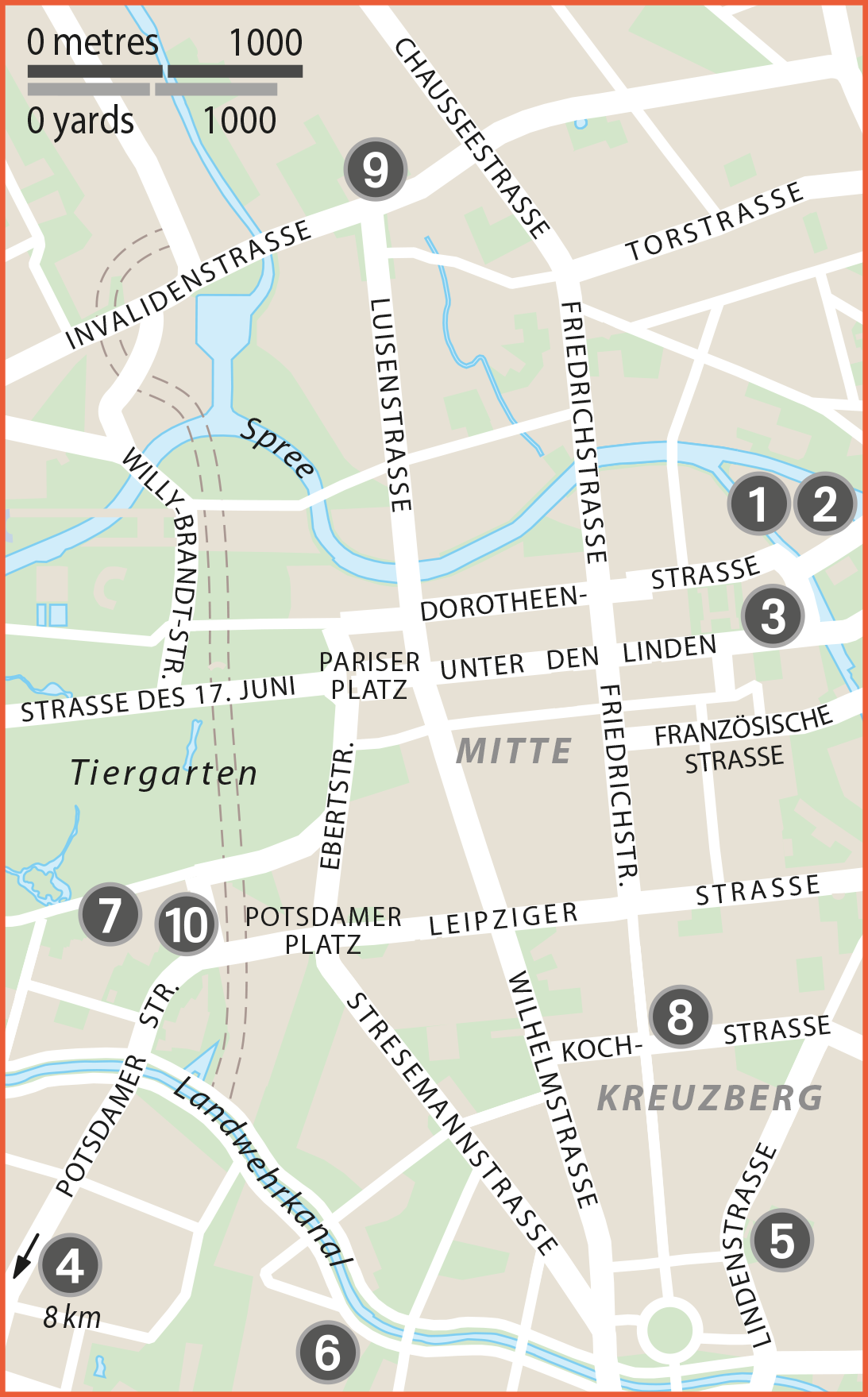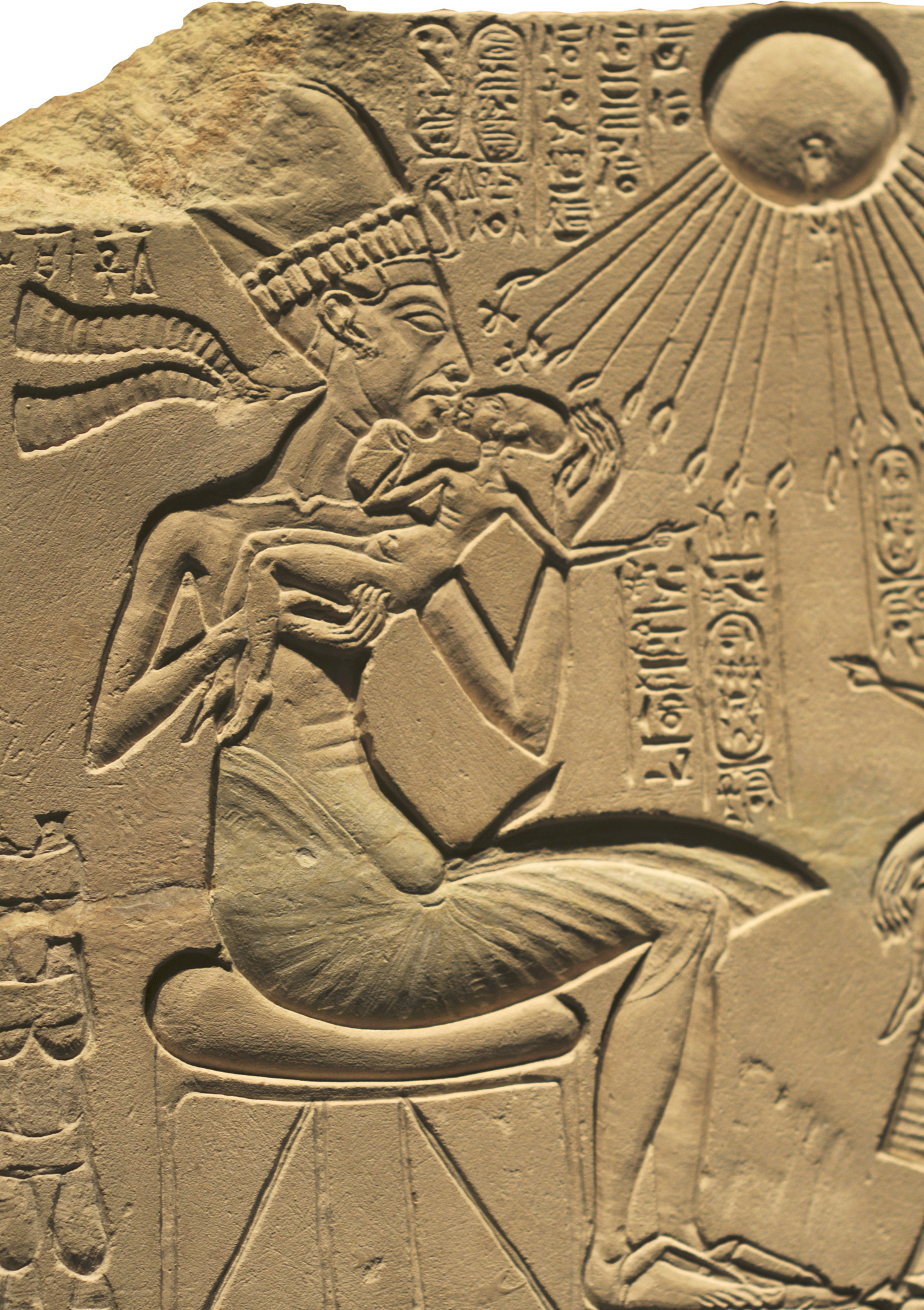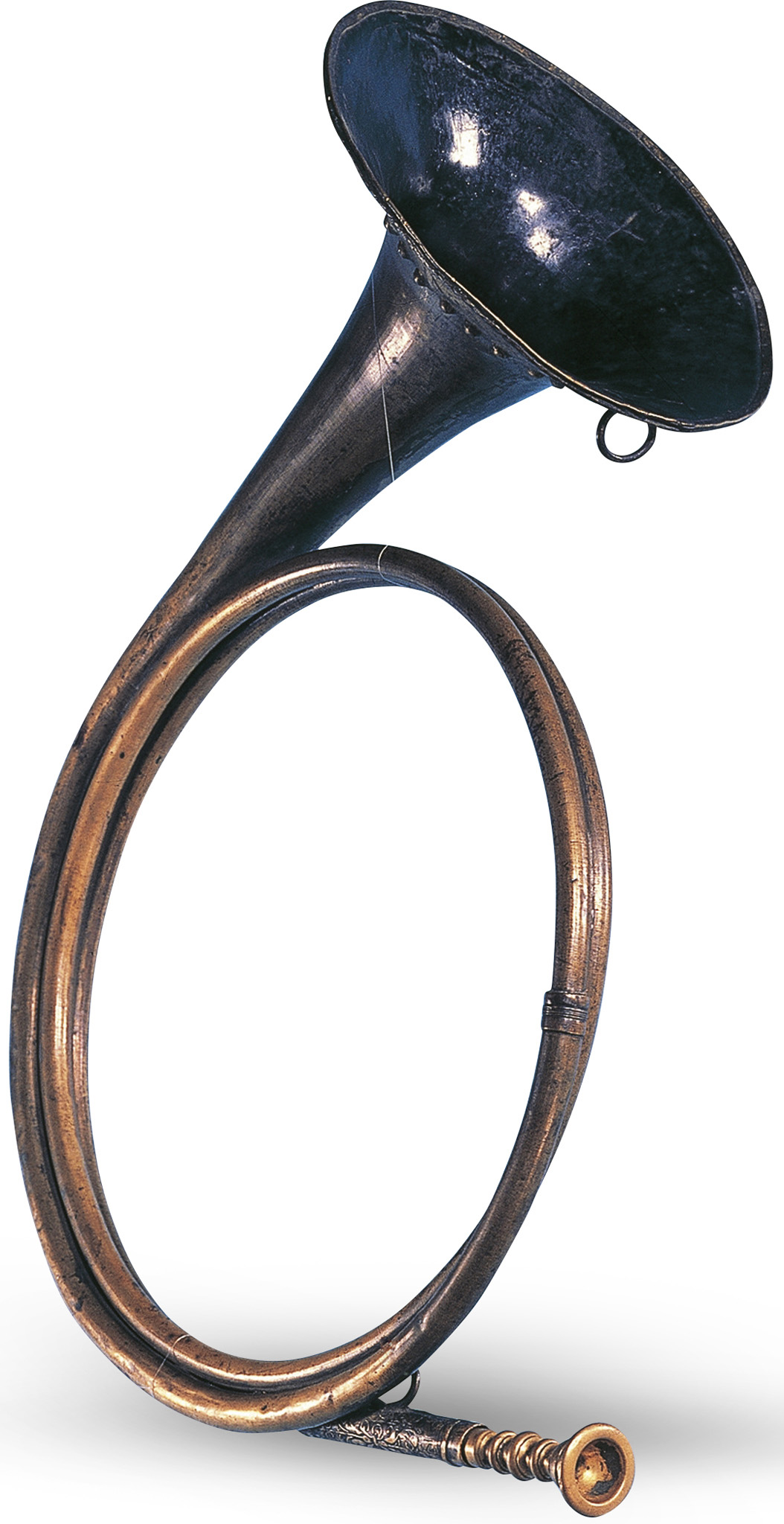MUSEUMS

1. Pergamonmuseum
This impressive museum on the Museuminsel is a vast treasure trove of antiquities (see Pergamonmuseum).

Exhibit at the Pergamonmuseum
2. Ägyptisches Museum
 Museumsinsel, Bodestr. 1 • (030) 266 424 242 • 10am–6pm daily (until 8pm Thu) • Adm • www.smb.museum
Museumsinsel, Bodestr. 1 • (030) 266 424 242 • 10am–6pm daily (until 8pm Thu) • Adm • www.smb.museum
The star exhibit in the Egyptian Museum, which is a part of the Neues Museum, is the beautiful bust of Nefertiti, wife of Akhenaton. The long-necked limestone bust, discovered in 1912, was copied all over ancient Egypt. Also worth seeing is the “Berlin Green Head”, a small bust from the 4th century BC. The museum also holds numerous mummies, sarcophagi, murals and sculptures (see Museumsinsel).
3. Deutsches Historisches Museum
Germany’s largest history museum uses unique exhibits, documents and films to take the visitor on a journey through German history, from the Middle Ages to the present day. Special exhibitions are devoted to particular themes (see Deutsches Historisches Museum).
4. Museum Europäischer Kulturen
This museum specializes in European folk art, lifestyle, tradition and culture, and, with some 280,000 objects, is one of the largest of its kind in the world. It hosts long-running as well as temporary exhibitions, often in conjunction with museums from other European countries. Among the vast collection of exhibits on display are earthenware items, costumes, handicrafts, jewellery, toys and tools (see Museum Europäischer Kulturen).
5. Jüdisches Museum
The Jewish Museum, housed in a spectacular building designed by Daniel Libeskind, documents the German–Jewish relationship through the centuries. There are special exhibitions on the influence of Berlin Jews on the town’s cultural life, and on the life of the Enlightenment philosopher Moses Mendelssohn. An empty room commemorates the loss of Jewish culture. There is also an excellent programme of special events (see Jüdisches Museum).
6. Deutsches Technikmuseum
The fascinating German Museum of Technology, built on the site of a former railway goods yard, has some exciting hands-on displays on the history of technology (see Deutsches Technikmuseum).

A Junkers Ju 52 plane on display at the Deutsches Technikmuseum
7. Kunstgewerbemuseum
 Matthäikirchplatz • (030) 266 424 242 • 10am–6pm Tue–Fri, 11am–6pm Sat & Sun • Adm • www.smb.museum
Matthäikirchplatz • (030) 266 424 242 • 10am–6pm Tue–Fri, 11am–6pm Sat & Sun • Adm • www.smb.museum
European crafts spanning over five centuries are on display here. Its most valuable exhibits are the treasure of the Guelphs from Braunschweig and the silver treasure of the town council in Lüneburg. The museum also holds Italian tin-glazed earthenware, Renaissance faïence and German Baroque glass and ceramics. Popular displays show Neo-Classical porcelain and furniture, Jugendstil art and Tiffany vases (see Kunstgewerbemuseum).
8. Haus am Checkpoint Charlie
The museum at the former Allied checkpoint hosts an exhibition documenting events at the Berlin Wall (see Haus am Checkpoint Charlie).
9. Museum für Naturkunde
 Invalidenstr. 43 • (030) 20 93 85 91 • 9:30am–6pm Tue–Fri, 10am–6pm Sat & Sun • Adm • www.naturkundemuseum-berlin.de
Invalidenstr. 43 • (030) 20 93 85 91 • 9:30am–6pm Tue–Fri, 10am–6pm Sat & Sun • Adm • www.naturkundemuseum-berlin.de
With over 30 million specimens in its collection, the Natural History Museum is one of the largest of its kind in the world. One of the star features is the world’s largest dinosaur skeleton, a brachiosaurus found in Tanzania in 1909. There are six more dinosaur skeletons as well as a variety of fossils. Together, they take the visitor back to prehistoric times. It is also worth making a visit to the glittering exhibition of meteorites and minerals (see Museum für Naturkunde).
10. Musikinstrumentenmuseum
 Ben-Gurion-Str. 1 • (030) 25 48 10 • 9am–5pm Tue–Fri (to 8pm Thu), 10am–5pm Sat & Sun • Adm • www.sim.spk-berlin.de
Ben-Gurion-Str. 1 • (030) 25 48 10 • 9am–5pm Tue–Fri (to 8pm Thu), 10am–5pm Sat & Sun • Adm • www.sim.spk-berlin.de
Some 800 musical instruments can be heard in this museum, including Frederick the Great’s harpsichord (see Musikinstrumentenmuseum). Don’t miss the silent-film organ which still works (noon, first Saturday of the month).

18th-century hunting horn


